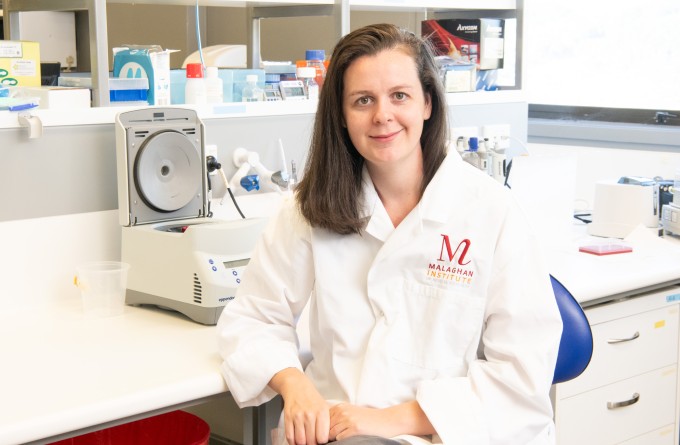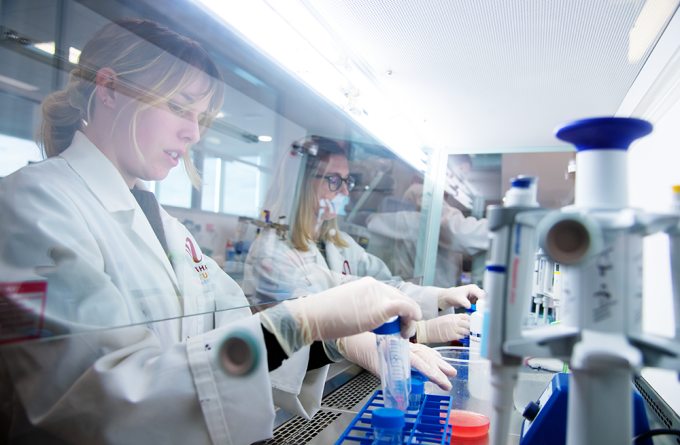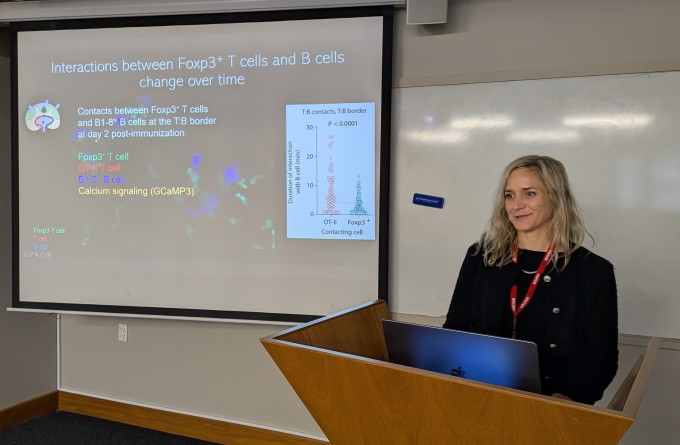3 November 2021
The Malaghan Institute’s Dr David O’Sullivan has received a Marsden Fund Fast-Start grant, worth $360,000, to investigate the impact of fever on our immune response.

The project will explore how the increase in physiological temperature during fever impacts the function of specific immune cells, called T-cells, that are crucial in mounting an appropriate immune response against infectious diseases.
“Despite fever being such a common symptom in many diseases, we don’t fully understand how fever alters immune responses,” says Dr O’Sullivan. “This Marsden Fund grant will support research to explore the role fever has in altering T-cell metabolism and function during infection.”
Fever is known to have direct effects on bacteria and viruses, which helps the body to control these infections. However, another unexpected role of fever may be its ability to alter immune cell energy usage to enhance the disease fighting capabilities of the immune system.
“Fighting infection is an energy-intensive process and immune cells need to optimise their fuel consumption to effectively clear bacterial and viral infections.” says Dr O’Sullivan. “We think fever may act to enhance some of the cellular pathways needed to fuel these cells.”
Dr O’Sullivan has shown that fever promotes the activation of T-cells so they are able to fight infections effectively. However, these same beneficial effects of fever might be detrimental if they occur after the infection has been cleared. Optimising fever during infection maybe a balancing act to allow T-cells to both clear current infections and to recognise and engage with future infections.
In this project, Dr O’Sullivan aims to characterise the alterations that occur in T-cells as a result of fever during infectious diseases.
Since the start of the pandemic, developing strategies to effectively treat infectious diseases has become increasingly important. Increased understanding of how fever influences immune responses may contribute to improving health outcomes in patients with infectious disease such as COVID-19.
“By understanding how fever alters immune cell function; in the future we may be able to harness fever as a tool to optimise the body’s response to infection” says Dr O’ Sullivan.
Related articles

How our immune system tackles fungal foes
23 October 2025

New funding supports cutting-edge research into immune cell metabolism
13 October 2025

The Detail: The viral drift of misinformation
29 September 2025

Cancer, measles and allergic disease research funded in latest HRC grants round
19 August 2025

Dr Lisa Connor: Finding new ways to target old viruses
24 July 2025

Malaghan visiting researcher: Dr Johanne Jacobsen
22 July 2025
